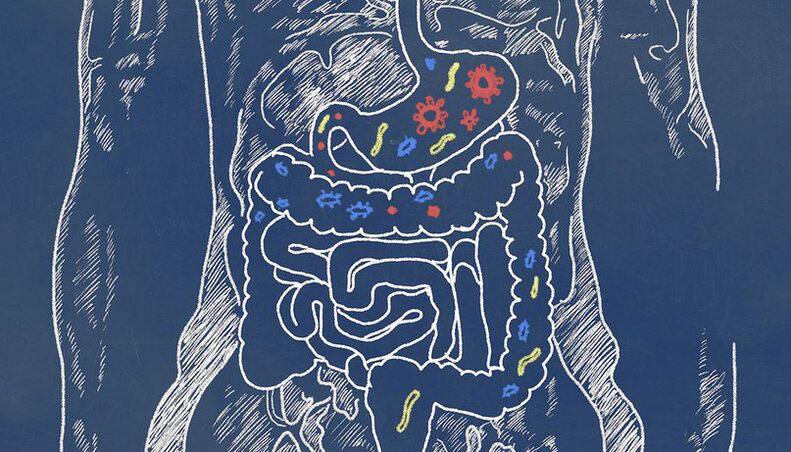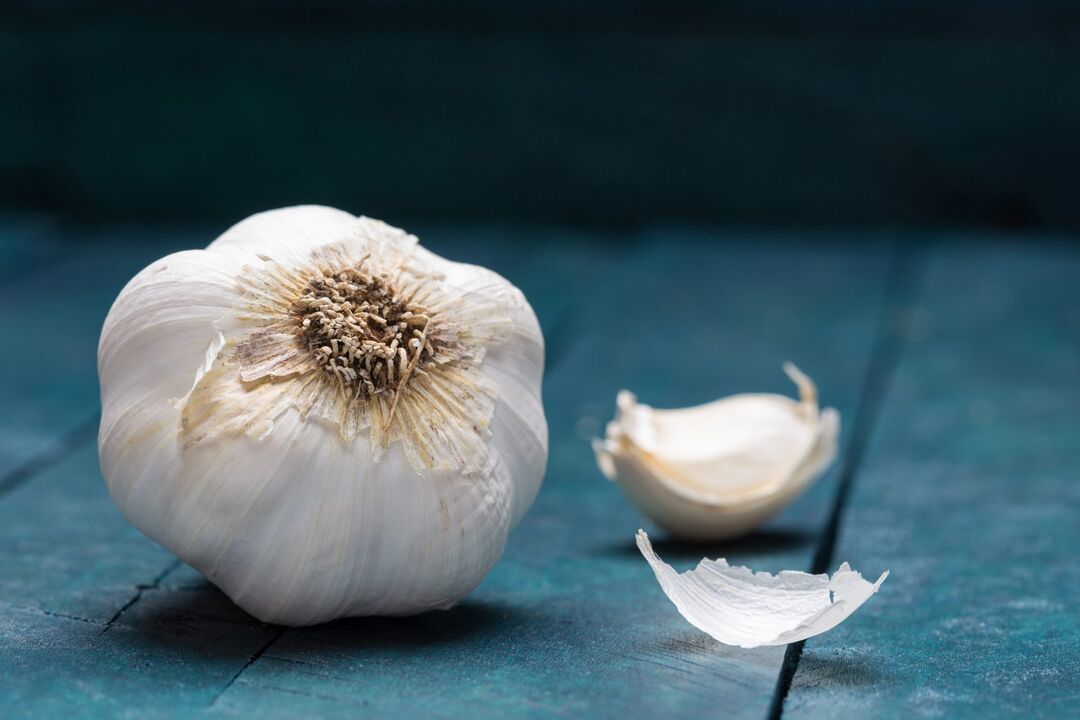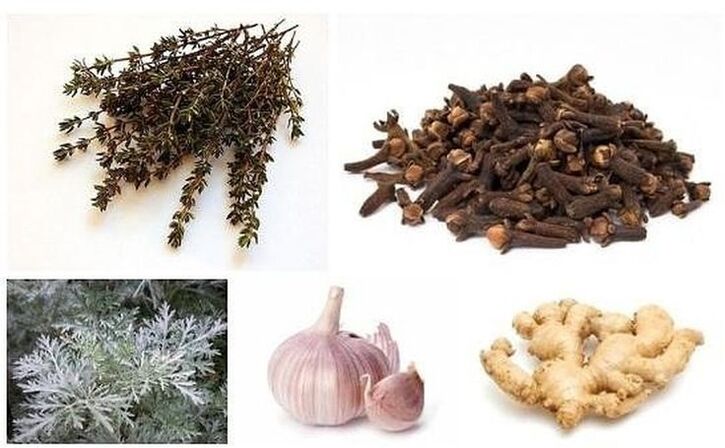Parasites are the simplest type of bacteria, they live off the nourishment of another organism and live on it. They feed on readily available organic matter produced by others.
Currently, there are more than two dozen parasitic life forms that can live in animals or humans.
They can all enter our bodies and cause a host of diseases and infections. A lot of times this bacteria is present in children because they don't have that high immunity and they have a lot of contact with animals and some dirty stuff.
Remember how little kids often put everything in their mouths?
These items may contain dangerous parasites. This article provides a breakdown of human parasites, how to treat infectious diseases, and what you need to do to prevent harmful bacteria from entering your body.
Parasitic bacteria in the human body, which organs can they live in?

The simplest bacteria on the human body and skin, they can be unicellular and multicellular.
Parasites that live on the body are called ectoparasites. This species includes bed bugs, lice and similar scabies pathogens. Others are called endoparasites because they live inside the human body. These include amoeba, worms and insect larvae.
The latter is the most dangerous, while the former is simply unpleasant.
Endoparasites often cause serious disease and are more difficult to get rid of than ectoparasites. Medicine has found many ways to get rid of them, and there is a lot of experience in treating parasites in the human body.
Every parasite has its ideal place in the human body, where they have all the conditions for a parasitic way of life, that is, the nutrients necessary for growth and reproduction. Some of them can move as they grow.
In most cases, endogenous parasites can be found in the gut, muscle, blood, lungs, heart and liver. Some species even live in neural tissue. Exogenous parasites live on the skin.
How do parasites enter the body?
The first way is to ingest the bacteria into the body through food and water. Sometimes it gets infected or contaminated, so microbes start to multiply there. Insects such as flies and cockroaches also carry many harmful bacteria. Certain types of food can initially be contaminated - raw fish or raw meat. Many times, livestock meat is infected with parasites, so people don't eat it raw.
The second is to contact the family. In this case, the parasite is transmitted from humans through household items or animals. Infectious bacteria are often carried by street animals - dogs, cats, birds and mice.
The third is blood transmission by mosquitoes. In the CIS countries, this rarely happens, and most infected mosquitoes live in hot countries. Fourth, some insects enter the human body independently. They gnaw through the skin and penetrate into muscle tissue or blood, and then go where they live best.
What are the symptoms of parasites?
Parasites in the human body can cause completely different symptoms—from often imperceptible insomnia to skin formation. For example, ectoparasites often cause skin lesions and scabies. Internal parasites that live in the lungs often cause coughing. You may suffer from constipation, vomiting or diarrhea while they are in the intestines.
But the general signs of the presence of parasites in humans are as follows: insomnia, general fatigue, headaches, and sometimes allergic reactions. Many times, folk remedies are used, but they are not always pleasant, for example, not everyone can drink a glass of sauerkraut juice with bugs.
Consider symptoms when different types of parasites are present:
- The most common parasites in humans are worms or roundworms. They can cause indigestion and stomach pain, irritability, insomnia and anxiety, and sometimes dizziness. Detecting them is easy, you can see them in stool or test positive for worm eggs;
- Next up is a rather dangerous parasite - the tapeworm. It usually causes abdominal discomfort or pain, diarrhea, loss of appetite (you eat a lot without gaining weight), liver pain, and worms in the stool;
- If pinworms are present in the body, he may notice loss of appetite, insomnia, nervousness and anal itching.
Why are parasites dangerous?
They disrupt the function of organs, cause inflammatory processes in tissues and destroy them. They produce toxic substances that damage the body.
The pests that infest you can cause vitamin deficiencies, general weakness, and weakened immunity in adults and children. The presence of such parasites in children is very dangerous because they slow down their development considerably. It is often difficult to get rid of parasites in the body because they tend to adapt and do not want to leave their habitual home.
How to treat parasites?

To get rid of parasites, you must first consult a doctor. He will prescribe a certain drug or another that is more natural.
There are also folk remedies for treatment, but it is recommended to be carried out in symbiosis with medicine.
medical treatement
Doctors have long discovered an effective treatment for parasites in humans.
Some medicines come in tablet form, while others come in other forms, such as liquids. The dosage is determined only by the doctor and it is impossible to do it yourself without side effects. In addition, there are differences in the age of the patients targeted by the drugs.
In the modern world, there is another cure for parasites. It's called Oxygen, it's a relatively recent phenomenon, and it's only done in hospitals under the supervision of a doctor. First, the patient's intestines are cleaned with an enema, and then oxygen is introduced by the probe method. After filling the stomach and rectum with oxygen, the parasite dies. Unlike the drug method, with this method, the cured patient does not suffer any side effects.
Parasites: a quick cure with folk remedies

All kinds of parasites in the human body can be removed with folk remedies, and some doctors even recommend some natural remedies to eliminate these pests.
Pumpkin seeds are the most famous remedy for parasites. They contain many nutrients that are beneficial to humans and their gut flora, but are harmful to protozoan pests. For complete cure, eat 20 grams of pumpkin seeds on an empty stomach in the morning, and drink laxatives after 30-40 minutes.
Vegetable oils are used as natural laxatives, the most common being castor oil.
To treat parasites with adult folk remedies, use deworming tea, and after cleansing the intestines with enemas. To prepare a decoction, you can take wormwood, cloves, celandine, or tansy. They both have a spicy and bitter taste, so they make the environment in the gut unfriendly to pests.
However, be careful about the herbs you use, many of which are contraindicated for pregnant women.
Diet to prevent parasites

Anyone who has been exposed to parasites knows the importance of recovery and prevention. To this end, the attending physician often prescribes a special diet. When you eat carbohydrates and protein separately, separate meals are recommended. Because if we eat them together, the stomach doesn't get an accurate signal about what needs to be digested and what enzymes are needed for that.
Incompletely digested food is an excellent way for parasites to feed, so they continue to live and develop.
For example, meat and beans should not be eaten with potatoes, pasta or bread. It's best to combine them with vegetables. If you want to eat carbohydrates and protein, you should take a 2-hour break between taking them.
Can't give up your favorite sandwich?
Serve with roasted vegetables. Eat grains regularly and they cleanse the body perfectly.
clean body

To cleanse and expel unwanted parasites from the body, some plants that are often sold in pharmacies, markets or supermarkets can help.
For the first method, you'll need green walnut peels. If you live in a hot area, you can certainly find walnut trees and collect unripe fruit from them. Take 15 nuts, remove the green peel and pour in the vodka. Soak for a month in a dark, dry place. Then dilute one drop of the tincture in half a glass of water and drink.
Gradually increase the dose, one drop per day for 7 days. After that, also gradually increase your intake to 2 teaspoons, taking the pill several times a day. Then continue to take 2 teaspoons of the tincture twice daily throughout the year. It's a fairly long cleaning process, but very effective.
An easier way is to use clove seeds. They need to be ground into powder state. Just take a teaspoon and a half of this powder. Over the course of ten days, gradually reduce the dose, and by the end of the cycle you should reach one teaspoon.
To cleanse the gut, a variety of freshly squeezed juices can help. For example, carrots, cucumbers, lemons, beets, apples - all these juices, when consumed on an empty stomach, create a certain environment in the stomach and clear the body of parasites.

























